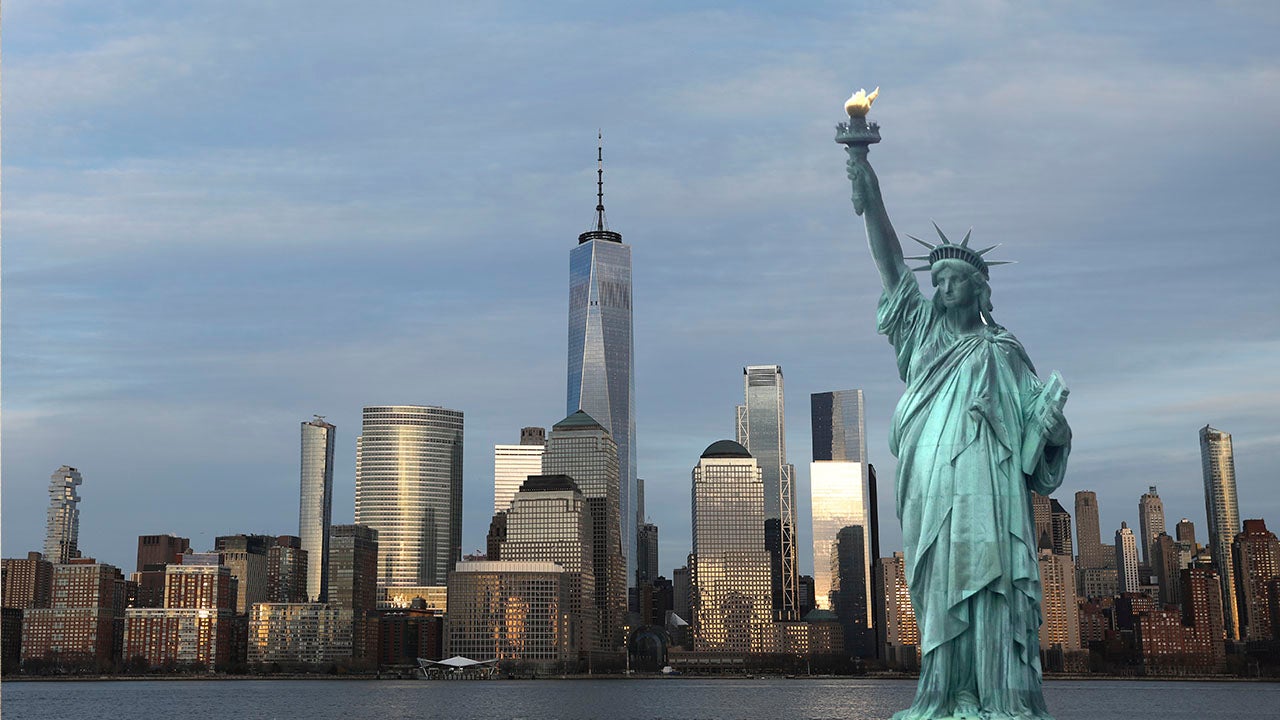Does this sound familiar? A new US President comes into office and withdraws from an international climate agreement, signaling a change in federal environmental policy. It should; this describes the US withdrawal from the Paris Climate Agreement in 2017 but also applies to the US withdrawal from the Kyoto Protocol in 2001. In this episode of the Business 20/20 podcast, we look back at this earlier event to find lessons on how business and civil society can keep environmental progress moving forward today.
The Business 20/20 podcast is a series that explores the changing relationship between business and society from 1999 to today. Each episode unpacks a key event—from the Seattle WTO protests to the global financial crisis and beyond—to find insights for the future. Produced by the Aspen Institute’s Business & Society Program and hosted by Michelle Harven.
Follow the Business & Society Program on @AspenBizSociety and subscribe to the Business & Society Newsletter.
Climate, Government, Business: What to Read to Go Deeper
In the spirit of “Foresight Through Hindsight,” here’s what to read on the issues discussed in this episode—both for foresight on the future, and greater clarity in hindsight on the recent past.
Foresight
Leading A New Era of Climate Action (Andrew Winston, Harvard Business Review) After a quick look at the “low hanging fruit” of climate action, this piece answers a bold question: “What are all the things business can possibly do with its vast resources?”
Paul Polman: ‘Get with civil society on fighting climate change, or get out of the way’ (Terry Slavin, Ethical Corporation) Drawing on an interview with the legendary Unilever CEO, this piece aligns rigorous business analysis with a stirring call for new coalitions on climate change.
Toward Equity: Prioritizing Vulnerable Communities in Climate Change (Earthea Nance and Beverly Wright, Duke Law Forum for Social Change) What’s the difference between “green development” and “just development”? This piece explains it in depth.
‘Toxic Stew’ Stirred Up by Disasters Poses Long-Term Danger, New Findings Show (Christopher Flavelle, The New York Times) In this episode, we heard how Earthea Nance’s work in New Orleans after Hurricane Katrina began with a focus on toxic chemicals spread by the floodwaters. This problem is becoming an issue in cities across America.
Reimagining Capitalism (Rebecca Henderson) If you’re in need of something hopeful: Consider Rebecca Henderson’s forthcoming book, which promises a new “intellectual foundation and a practical pathway forward for a system that has lost its moral and ethical foundation.”
Hindsight
The Public and Climate Change (Spencer Weart) A gripping account of the events, from scientific studies to Hollywood movies to Hurricane Katrina, that changed US public perception of the risks of climate change over the last few decades.
The Long Road to Paris: The History of the Global Climate Change Regime (Julia Kreienkamp, Global Governance Institute) This episode looked at the parallels between the Paris Climate Agreement and the Kyoto Protocol. But what about the connections between them? This piece provides a highly readable overview of the evolution of global climate change agreements.
How Hurricane Katrina Changed Corporate Social Responsibility Forever (Ryan Scott, The Huffington Post) Not covered in this episode, but further reading on Katrina: Walmart’s supply-chain capabilities enabled it to deliver supplies as government services faltered after the storm. It was a moment that would transform the company’s trajectory.
Majority of Americans Now Say Climate Change Makes Hurricanes More Intense (Emily Guskin, Brady Dennis, The Washington Post) This piece captures the recent tipping point for public perception on climate change and the threats it poses.
How Businesses Are Collaborating for the Sustainable Development Goals (Peder Michael Pruzan-Jorgensen and Sara Enright, BSR) A useful primer on key progress that has been made in recent years through efforts like the Clean Cargo initiative.
Episode Notes
Guests
Rebecca Henderson, Aron Cramer, Earthea Nance
Host
Michelle Harven
Writing and Production
Written by Keith Schumann with input from T.A. Frank, Miguel Padró, Felicia Davis, and the Business & Society Team.
Recorded by Ben Eyler and edited by Jesse Krinsky.
The Business & Society team wishes to thank the audio technicians and everyone involved in the production of this episode, including:
- Gail Delaughter
- Johanna Poschwatta
- Andrew Seltzer
- Adeline Sire
- Theresa Diederich
Music Samples Featured in this Episode
Algorithms by Chad Crouch (Excerpted form of the track; used under Creative Commons Attribution-NonCommercial 3.0 License)
Ongoing Cases by Blear Moon (Excerpted form of the track) Licensed under Creative Commons: By Attribution 4.0 International (CC BY 4.0) https://creativecommons.org/licenses/by-nc/4.0/
All the Answers by Lee Rosevere (https://leerosevere.bandcamp.com) Licensed under Creative Commons: By Attribution 4.0 International (CC BY 4.0) https://creativecommons.org/licenses/by/4.0/
Island of Despair by Daniel Birch (www.danielbirchmusic.com) Licensed under Creative Commons: By Attribution 4.0 International (CC BY 4.0) https://creativecommons.org/licenses/by/4.0/
Tobacco Road – Storyblocks Audio


